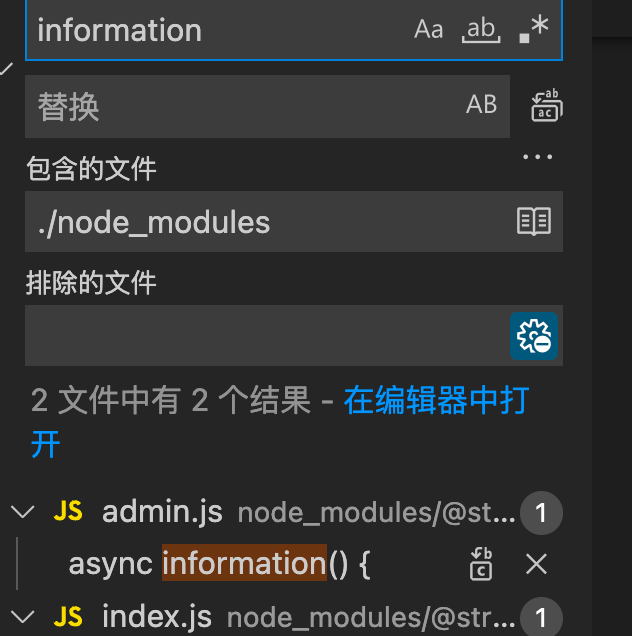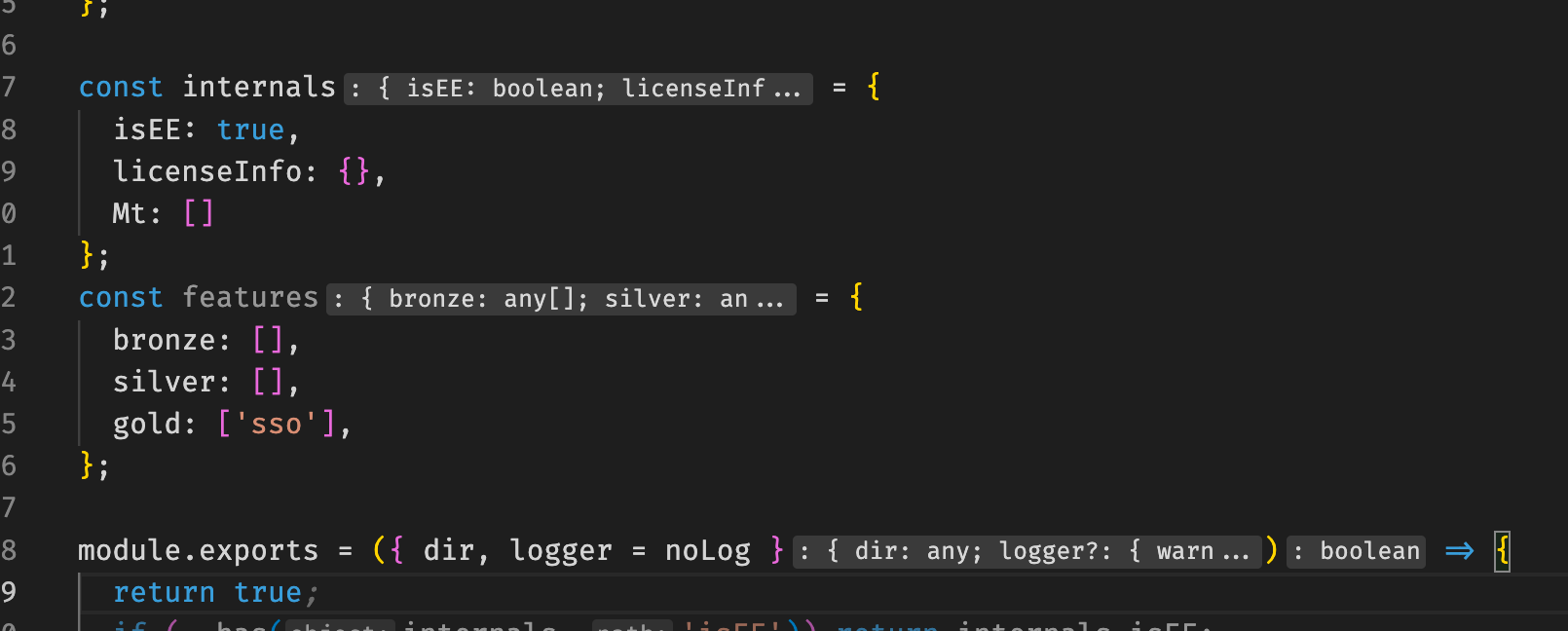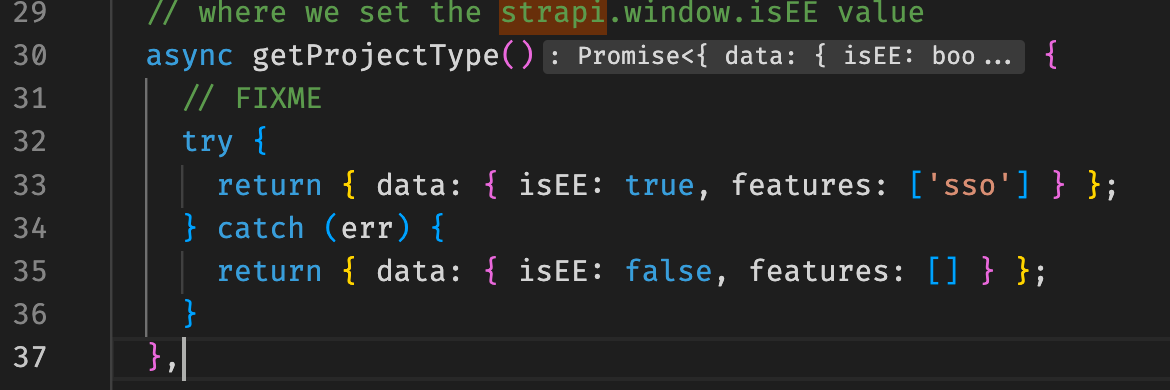Strapi is a very famous and powerful CMS system. It has a business enterprise version to limit free user that can only create three type of user role. So how could it do this. Let’s learn it.
First, we should run a strapi instance in your local machine. Open the admin url, press the F12, in the developer tools, we can find a request named information like this.

the response should like this
{"data":
{"currentEnvironment":"development",
"autoReload":true,
"strapiVersion":"4.1.10",
"nodeVersion":"v16.14.2","communityEdition":false,"useYarn":false}}
the column communityEdition should be the enterprise credentials.
In the normal case , we cannot search the url “/admin/information” in the node_modules. haha , but when we search information(), you could get this.

the code is
const currentEnvironment = strapi.config.get('environment');
const autoReload = strapi.config.get('autoReload', false);
const strapiVersion = strapi.config.get('info.strapi', null);
const nodeVersion = process.version;
const communityEdition = !strapi.EE;
const useYarn = await exists(path.join(process.cwd(), 'yarn.lock'));
the credential should be injected when the process start.
then above the code I found this.
const ee = require('@strapi/strapi/lib/utils/ee');
Ok, it’s the final file. the path is node_modules/@strapi/strapi/lib/utils/ee.js
const licensePath = path.join(dir, 'license.txt');
let license;
if (_.has(process.env, 'STRAPI_LICENSE')) {
license = process.env.STRAPI_LICENSE;
} else if (fs.existsSync(licensePath)) {
license = fs.readFileSync(licensePath).toString();
}
if (_.isNil(license)) {
internals.isEE = false;
return false;
}
the core logic seems like if you buy the enterprise credential, you would get a license that you could put it in the STRAPI_LICENSE directory.
The last , ps. if you want to test the EE in your local , just do this .

and

and the sso feature is here node_modules/@strapi/admin/server/controllers/admin.js

haha . When I saw FIXME, I felt a little funny.
The End. Welcome to contact me.